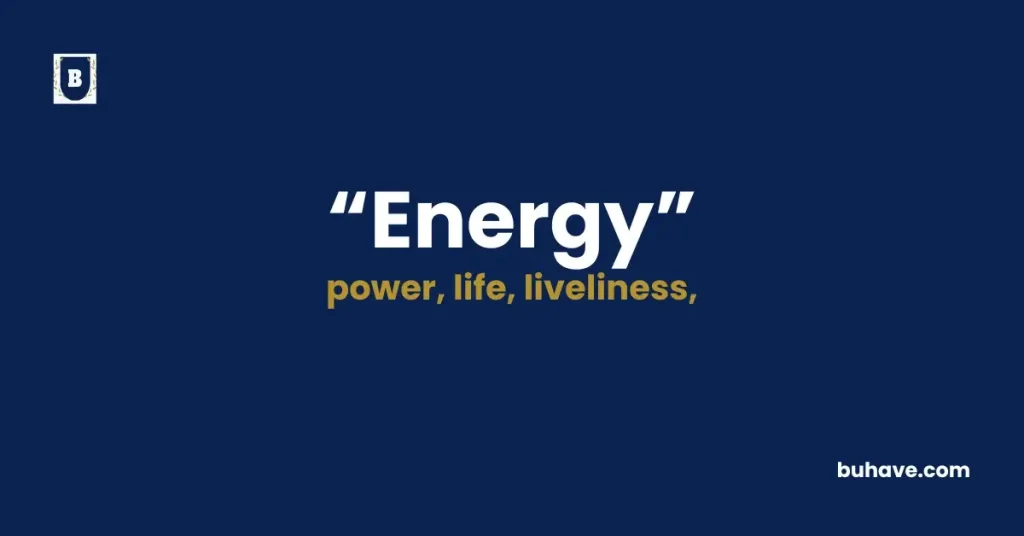The word ‘Energy’ (Noun) describes the strength, vitality, or power to do things or make things happen. In this guide, you’ll learn the full definition, synonyms, antonyms, etymology, and real-life examples of how to use ‘Energy’ correctly in sentences.
Energy Explained in Depth
A complete and detailed guide to the word ‘Energy’ including meaning, definition, examples, etymology, synonyms, and antonyms.
Meanings of Energy
Energy means the capacity or power to do work, act, or produce an effect. It refers to both physical and mental strength, enthusiasm, or drive that helps a person accomplish tasks and achieve goals. Energy can also refer to power from physical sources (like electricity or fuel) that can be converted into movement, heat, or other forms of work.
Definition
Energy is a noun that refer the strength or vitality required for sustained physical or mental activity. It also refers to a natural power source that can be transformed into movement, heat, or work. In people,
it often describes enthusiasm and drive to accomplish things, while in science, it refers to the capacity to perform work or produce change.
Etymology
The word “energy” comes from the Ancient Greek word energeia, meaning “activity, operation, or work.” It entered English in the late Middle Ages from the French word énergie and has kept its connection to strength and activity ever since.
Example Sentences
- She has so much energy that she never seems to get tired.
- Renewable energy sources like solar and wind are essential for a sustainable future.
- He brings a lot of positive energy to every project he works on.
Energy Synonyms
- Vitality
- Power
- Strength
- Enthusiasm
- Drive
- Vigor
- Force
- Dynamism
- Liveliness
- Spirit
Energy Antonyms
- Fatigue
- Exhaustion
- Weakness
- Lethargy
- Inactivity
- Sluggishness
- Listlessness
- Apathy
- Weariness
- Passivity
FAQs about Energy
Here are some frequently asked questions (FAQs) about the word “Energy”
1. What does “energy” actually mean?
“Energy” refers to the strength or power to get things done—either in people (like enthusiasm and drive) or in science (like the ability to do work or produce heat and motion).
2. Is energy only about physical activity?
No, energy also includes mental and emotional strength, as well as scientific concepts of power that fuel machines and systems.
3. Can energy be renewable?
Yes! Renewable energy includes sources like solar, wind, and hydroelectric power that naturally replenish and help protect the environment.
4. How can I boost my energy?
You can boost your energy by eating well, sleeping enough, exercising regularly, staying hydrated, and maintaining a positive mindset.
5. Why is energy important in everyday life?
Energy powers everything we do—from our own bodies to the devices and machines that help us live and work. Without energy, nothing can get done!

















